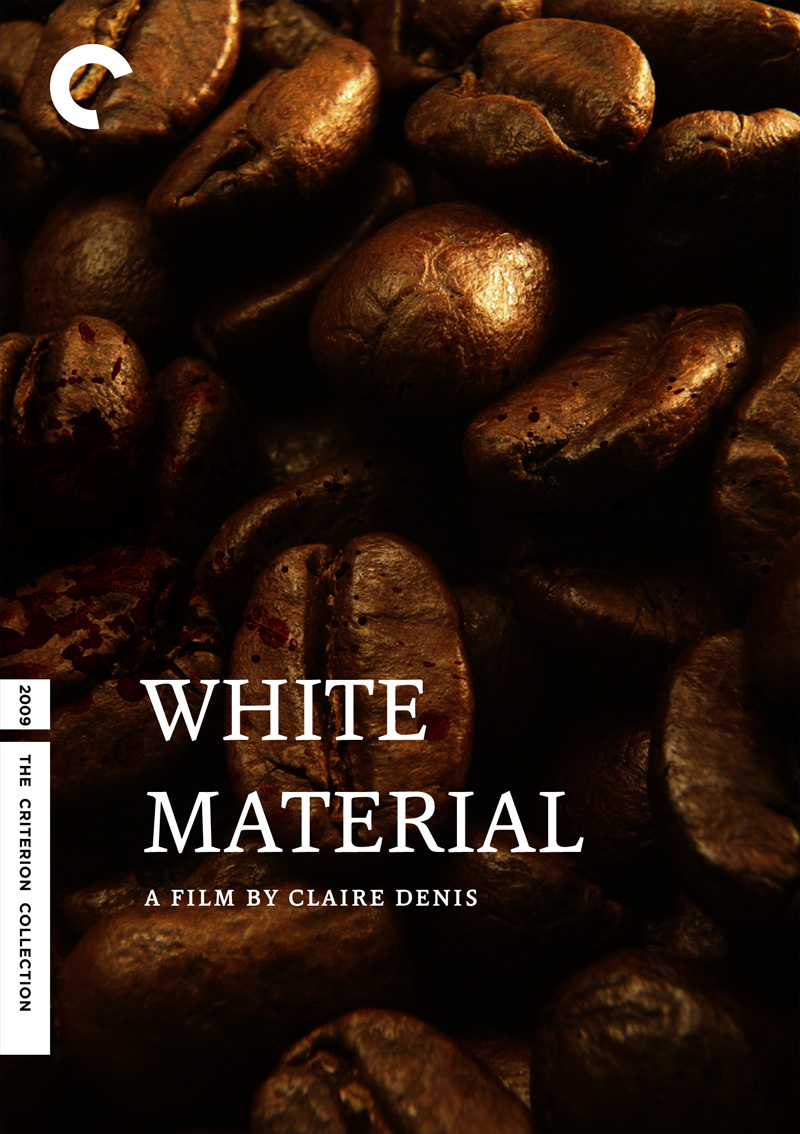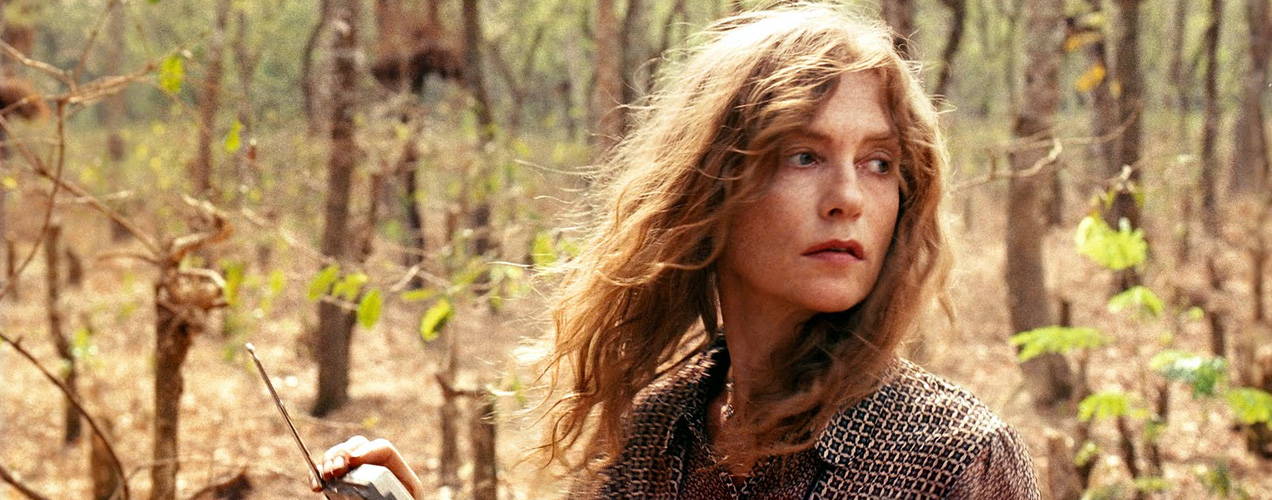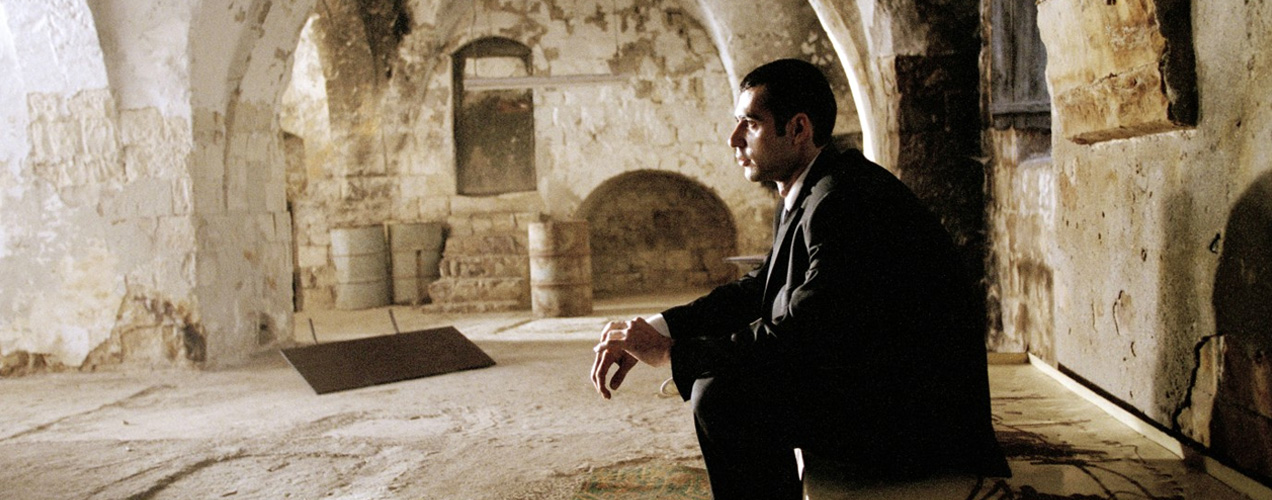
#4: White Material by Claire Denis. In the ten days leading up to the 83rd Annual Academy Awards, I listed my ten favorite films of 2010, each accompanied by a custom Criterion Collection cover inspired by Sam Smith’s Top 10 of 2010 Poster Project.
2009 / Claire Denis > Cinema has rarely treated colonialism with an objective eye. Instant disdain has been nothing short of what’s been expected in a society hellbent on correcting wrongs of the past by hurting the present and future. Everything from affirmative action in the United States to the black empowerment movement in South Africa has set us up for further clashes without actually understanding the roots of the troubles. Even the origins of something as ever-present as Islamic terrorism remain oblivious to much of society, but you can’t always blame them for it. The job of the mass media is to enrich and educate the lives of those who come home from a hard day’s work, but sensationalism has taken precedence in lieu of rational discourse.
So, where do we go from here? While PBS may be on its last legs, technological ease has paved the way for well-spirited blogs and open-minded films like White Material. Unlike the foundation of liberal guilt that pervaded Hotel Rwanda, Denis makes no apologies for what the white man has done to Africa. She accepts it as fact, but digs deeper into the mindset of those who stay behind when the proverbial revolution happens. How does one treat those who were born into colonial society? Do we look with contempt the second or third-generation offspring who’ve always considered the African soil their home?
White Material is rich with doubt: Will there be a tomorrow? Will we survive even if there is? Will we be wanted? It is Denis’ elegy to colonialism and represents the darkest corners of The African Queen. Isabelle Huppert is magnificent as Maria Vial, a woman trying to keep her coffee plantation functioning while the world around her falls apart. The enemies are both within and without, with additional tension provided by Maria’s disillusioned son (played by Nicolas Duvauchelle in one of the best supporting performances of 2010). This is a film that promotes understanding of a dying world, one that we’ve already been told is very, very bad. But not all people, even when part of a terrible injustice, are evil. Sometimes circumstance just kills.


